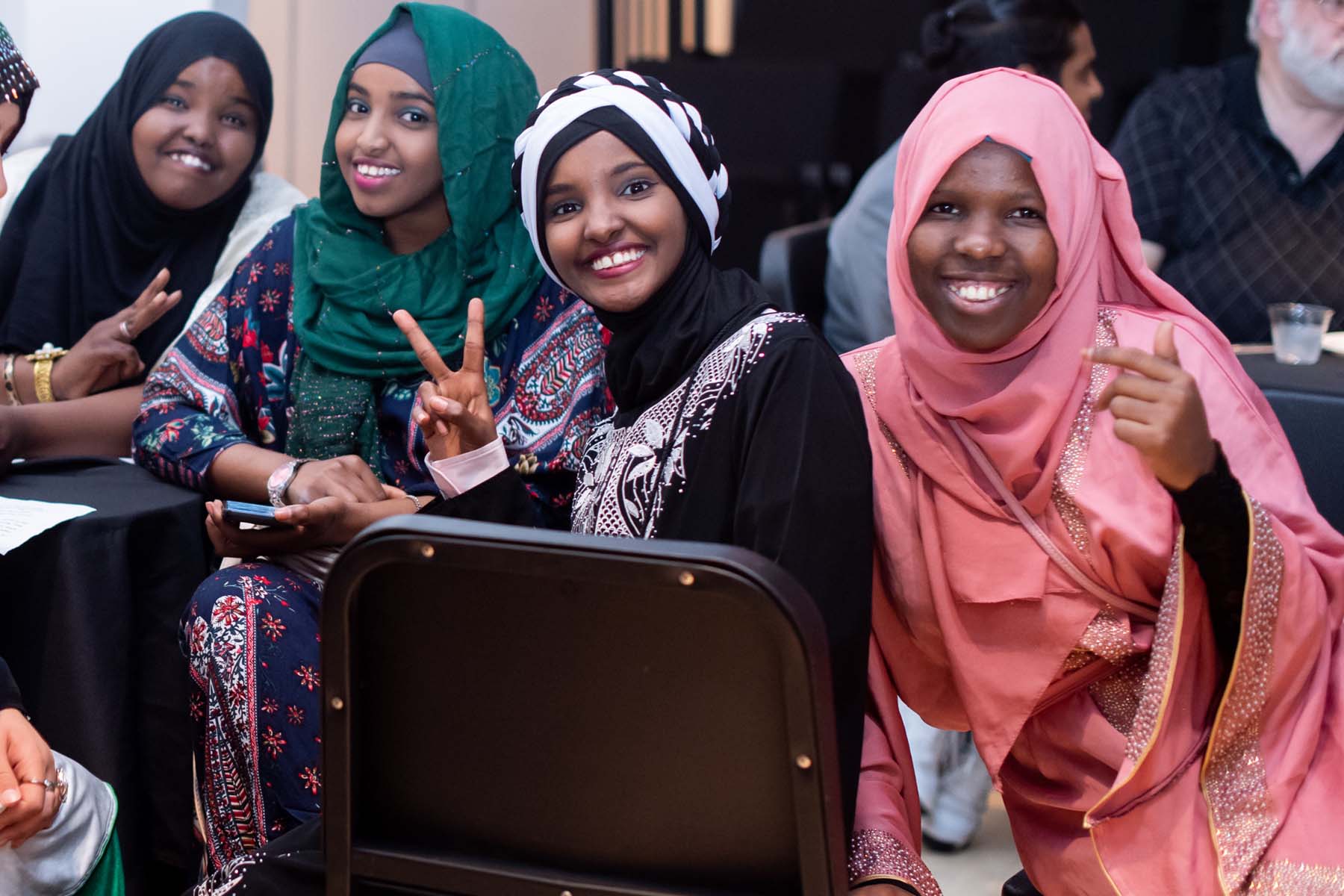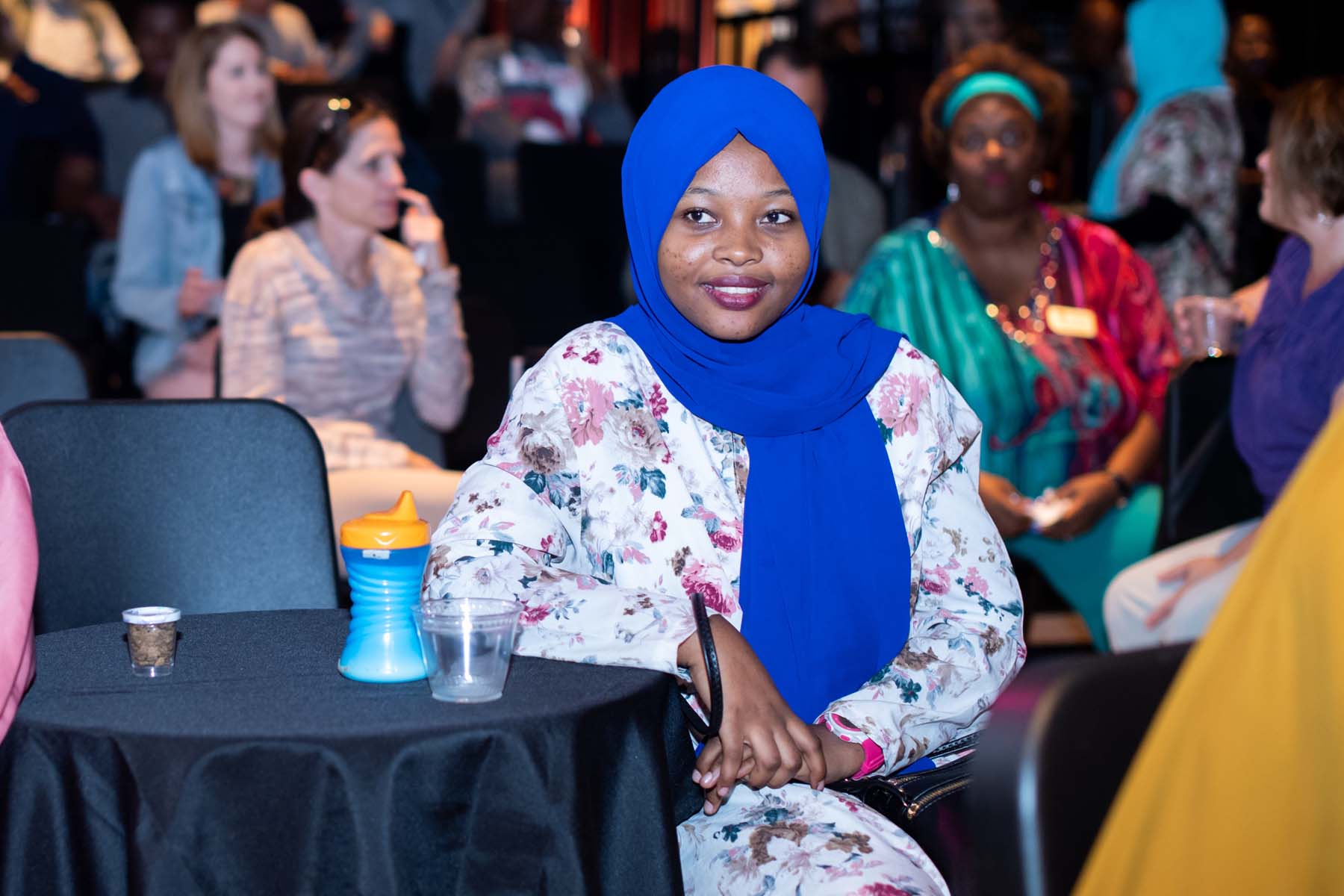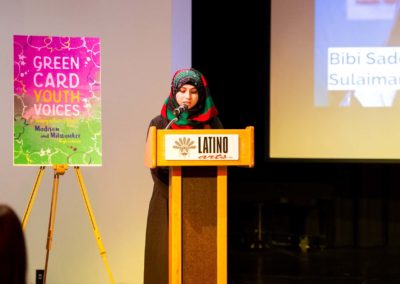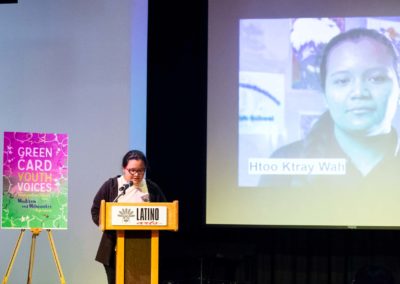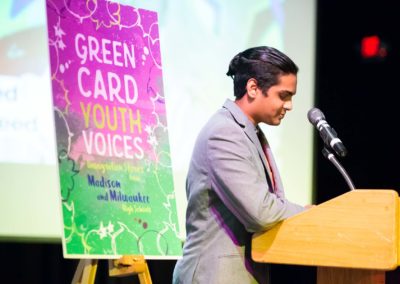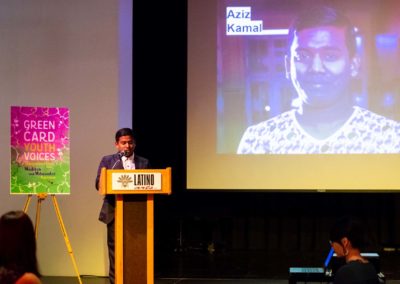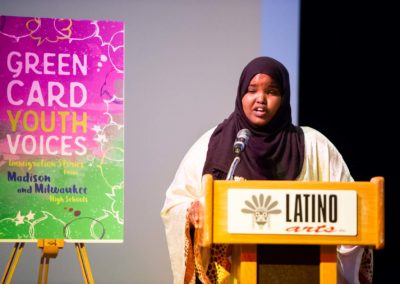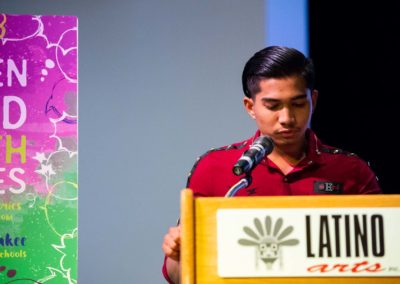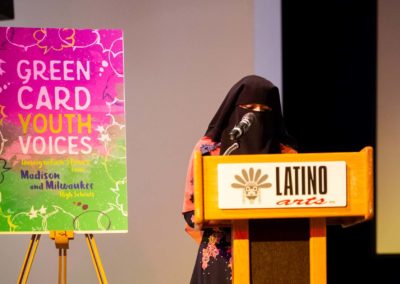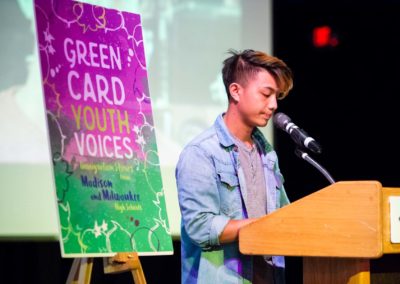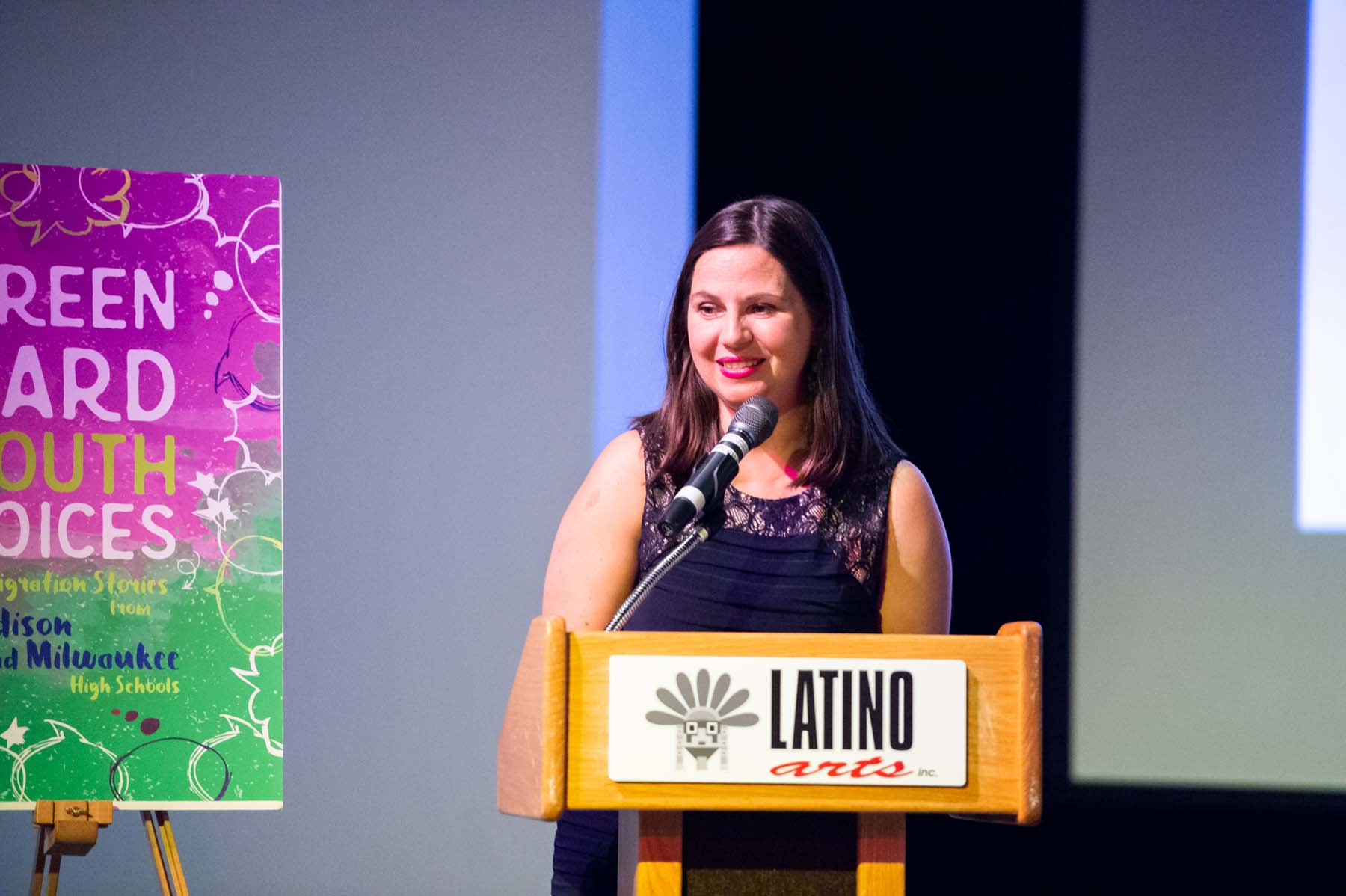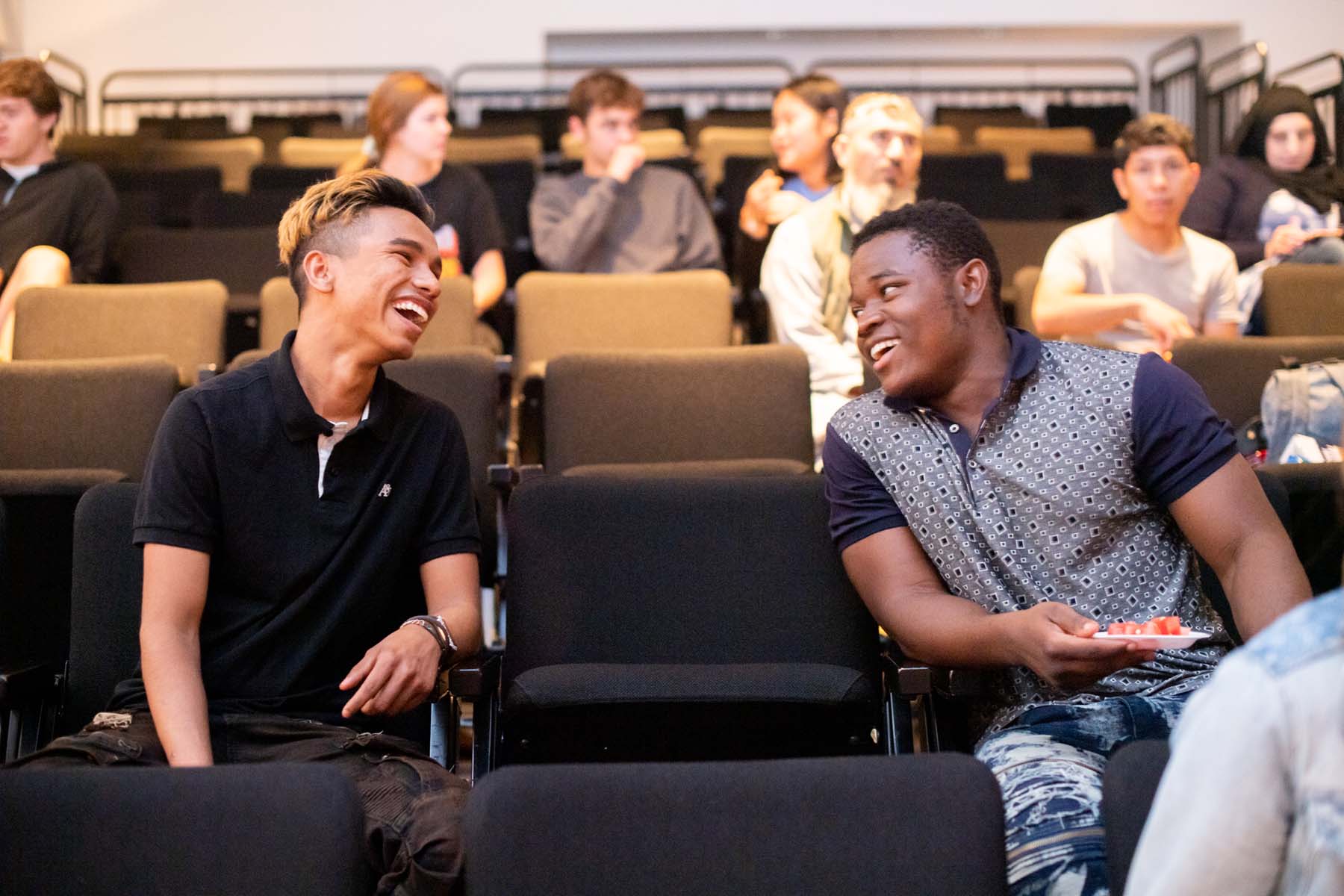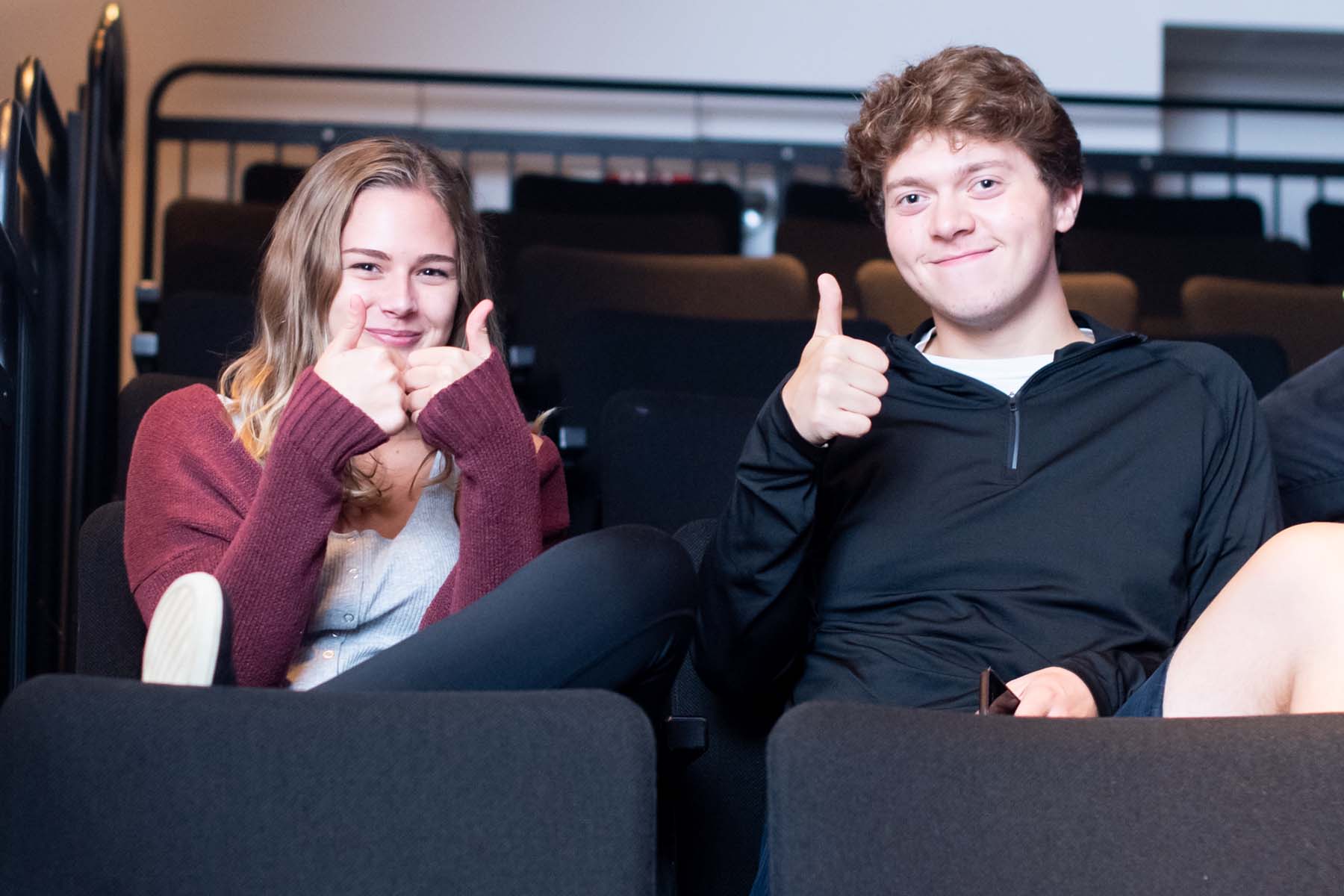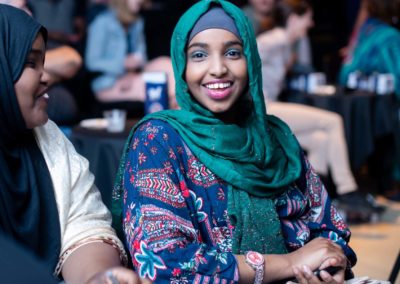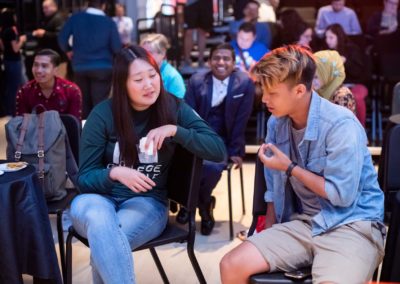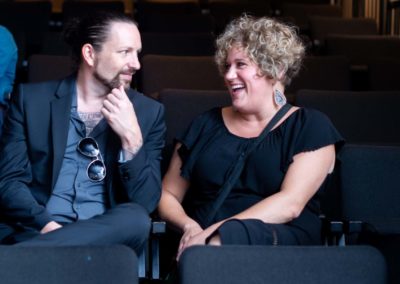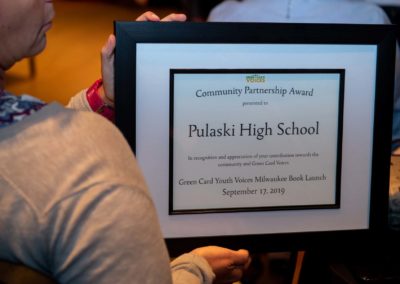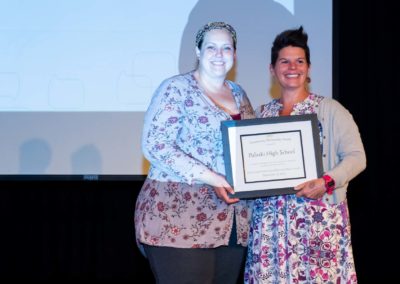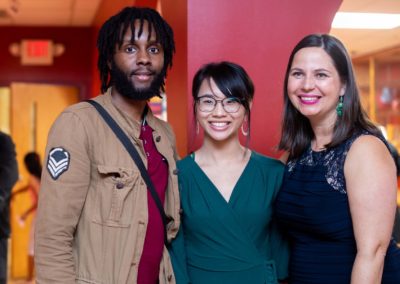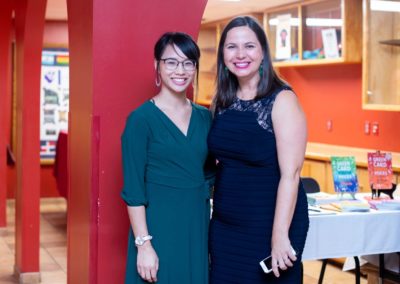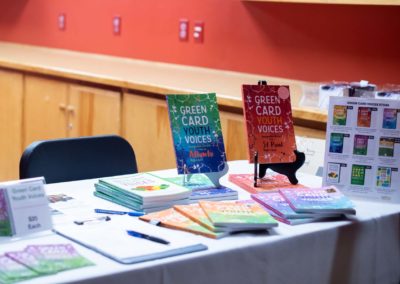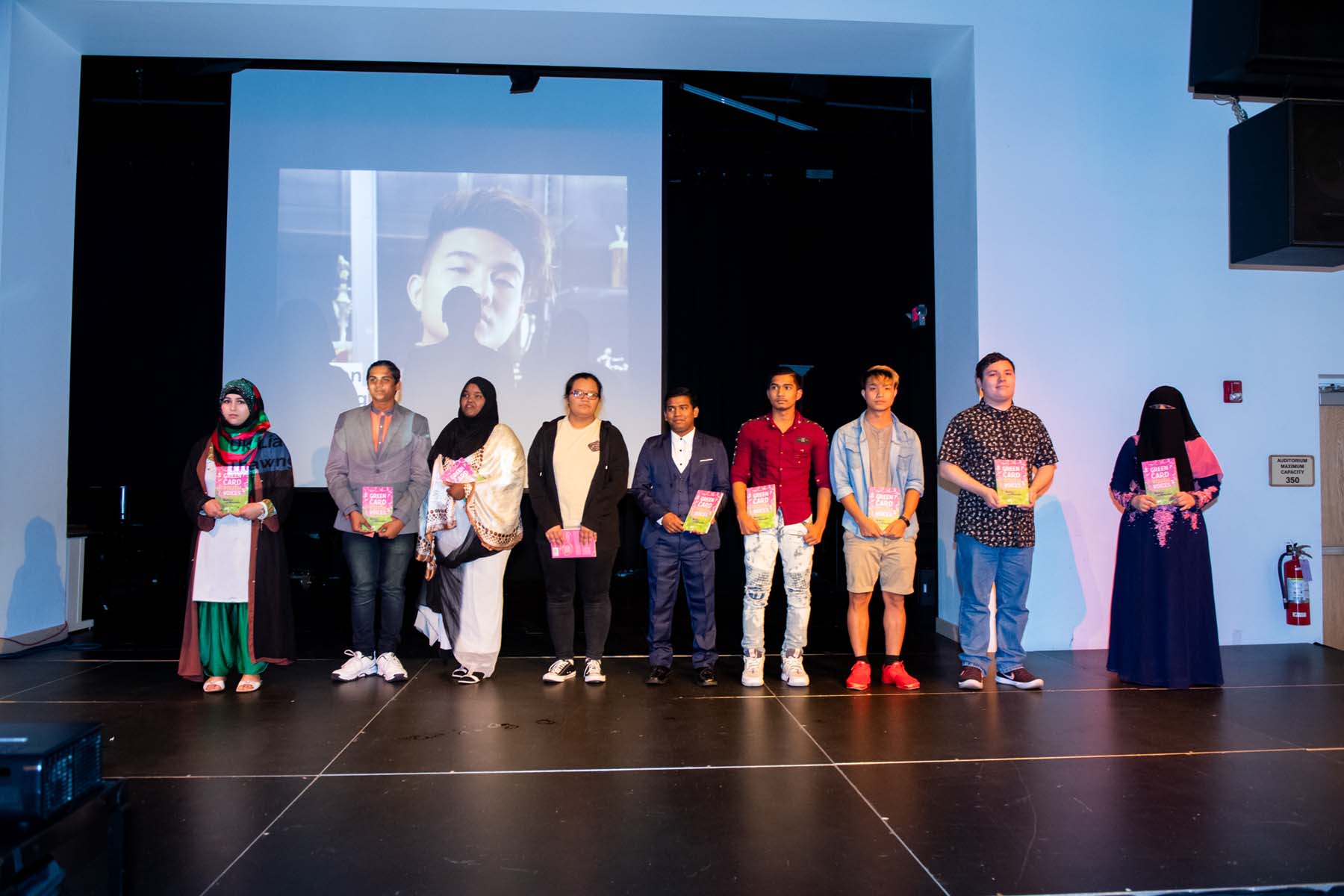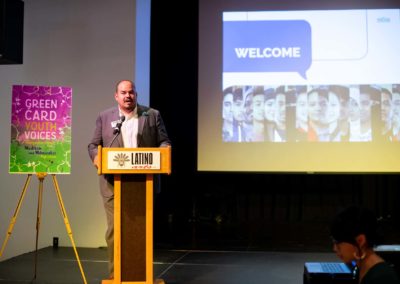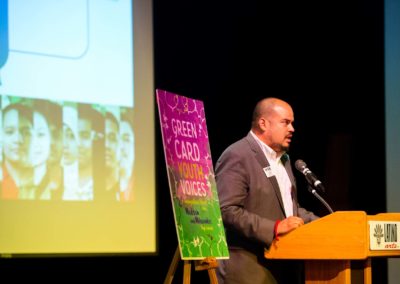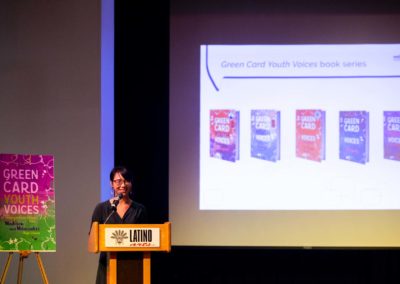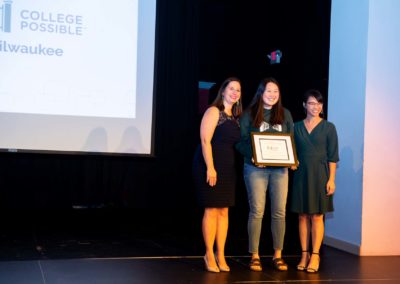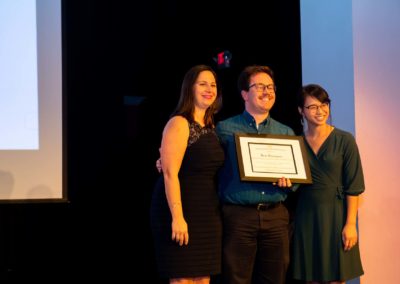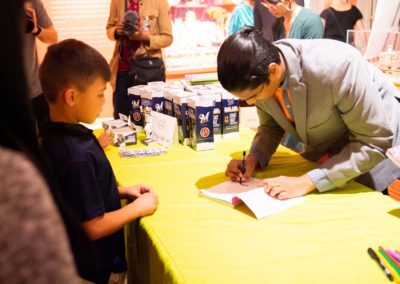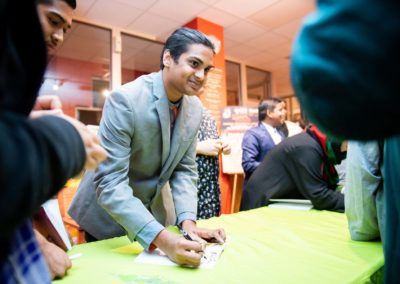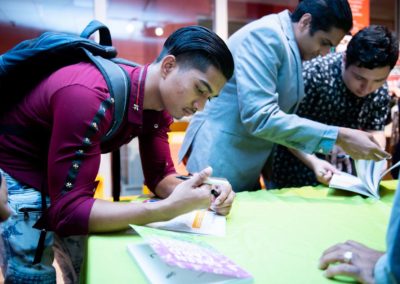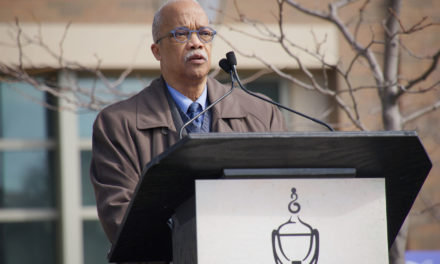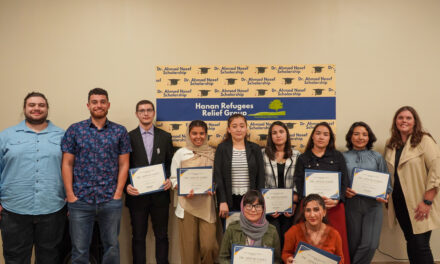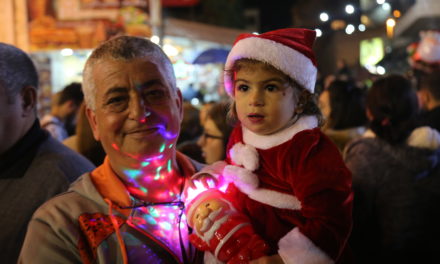© Photo
Mouna Photography for the Wisconsin Muslim Journal
“Stories, told authentically and from the heart, melt hate,” Tea Rozman Clark, co-founder of the organization Green Card Voices, said at the launch party for Green Card Youth Voices: Immigration Stories, held at Latino Arts on South 9th Street in Milwaukee last Tuesday night.
The eight students from Pulaski High School who were featured on Tuesday evening are all published authors. Their stories are included in the fifth and latest book in the series published by GVC, which features 30 personal essays by high school students from Milwaukee and Madison. At Tuesday night’s event, young people born in many different nations –Myanmar, Pakistan, India, Bangladesh, Somalia, Puerto Rico – stood before a capacity audience of teachers and classmates and read brief excerpts from their published stories.
Rozman Clark warned the audience that they should “make space” for the stories, which sometimes told of hardship and violence. But each of the Pulaski students read a story with the same, ultimately positive outcome. The students expressed their gratitude for being able to lead peaceful lives with their families in Milwaukee and especially for their education.
The title of the book speaks to one reason for this positivity. These high school students and their families possess coveted Green Card status and are on a path to becoming citizens of the United States.
Another reason for the positive outcomes may be the city of Milwaukee itself, which has a long history of welcoming hard-working immigrants and finding a place for them.
“I want people to know that Milwaukee is a receiving community,” said UWM professor Rachel Ida Buff, an acknowledged expert on immigration issues who teaches history and comparative ethnic studies. “Unfortunately, because of our previous governor, we don’t have as many refugees as we should.”
Tea Rozman Clark, who emigrated from Yugoslavia in her 20s, explained that GCV is an immigrant-led organization. “We want to be the ones to create the narrative about who immigrants are so all our communities can feel they belong here,” she said.
Thus far, according to Rozman-Clark, GCV has published 420 stories in the five-book series, from youth representing 125 countries who are now living in areas of the U.S. with significant immigrant populations. The series began in St. Paul and now includes Minneapolis, Fargo, and Atlanta, as well as Milwaukee/Madison. Up next, said Rozman Clark, is Rochester-Buffalo.
Each book in the GCYV series begins with a site visit to a high school, followed by recording and video editing of the students’ pieces, which are then transcribed and edited for print. The GCYV website features links to each of the 5-minute edited videos which became stories. There will be a total of six book-launch parties in Wisconsin for the Milwaukee/Madison book.
The first young author to read Tuesday night was Aziz Kamal, a member of the Rohingya community whose country of origin is Myanmar. Milwaukee currently has the largest Rohingya refugee community in the United States. “When I was in Myanmar, the Buddhist people killed Rohingya people,” Aziz read, “burned schools, burned our house.” The entire Rohingya part of Sittwe, the town where Aziz lived, “was destroyed. . . Right now Sittwe is nothing . . . because they burned everything – the store, houses, people’s homes, everything.”
Aziz and his family undertook a harrowing sea voyage to Malaysia on an overcrowded ship lacking food and supplies. The bodies of those who died at sea were simply tossed overboard. Then came two more years of virtual imprisonment in refugee camps, when Aziz was unable to work or go to school. Eventually, Aziz’s family was able to follow his father and brothers, who had already emigrated to Milwaukee.
Aziz’s story is one of escaping ethnic cleansing and political violence. But some of the students’ families came to Milwaukee for the same reason immigrants have always come – education for their children and opportunity for work.
Bibi Sadeeqa Sulaimankhel, whose story begins in in Quetta, Pakistan, said “my life was really good.” However, she said, her family was “a little bit poor, so we came to America.” In Milwaukee, she says, the biggest changes were her family’s house and the weather. And, “we’d never seen Black people and tall people,” she said. Bibi praised the fact that in Milwaukee, you can “buy things for just one dollar. Pakistan didn’t have a one-dollar bill.” Bibi is currently in the eleventh grade at Pulaski High school. Like many of the student readers, who look forward to STEM careers, her favorite subject is math.
Jonathan Cordero Torres, from Camuy, Puerto Rico, said his life on the island was “great every day . . . we would go to the beach and have fun. We went fishing and went to carnival.” In the meantime, Jonathan’s father was working “on the mainland” at the Milwaukee airport. “The main reason we came was to be with my dad again. It is also great to be learning stuff and reading books and creating art.”
Accompanying the Pulaski high school students were many of their teachers, including Christine Lemon, Pulaski’s IV coordinator, who worked on the Green Card Youth project; English teacher Jacques Coleman, who has many of the writer/readers in his classes; and school nurse Crystal Hoecherl. A supportive crowd of the students’ parents, siblings, and classmates filled the event space. The Milwaukee Brewers provided a buffet as well as a Yasmani Grandal bobble-head give-away.
After the readings, I spoke with one of the readers, Nur Fatema Nor Bashar from the Rohingya community, and her father, Nor Bashar. Like many of the fathers, Nor Bashar had worked in Malaysia as a security guard and held jobs all over Asia and the Middle East before bringing his family to Milwaukee. “I like very good American,” said Nor Bashar, listing some of the places he had worked: “Bangladesh, India, Pakistan, and Arabian Saudi. Better here in U.S.”
Like their parents, the students at Tuesday night’s reading and launch party have overcome hardships. But, as Bibi Sadeeqa Sulaimankhel said, “Now I feel good. If I can do this, I can do more things too.”
Juweriya Hassen, who was born in Mogadishu, Somalia in 2001, two years before civil war erupted in 2003, summed it up for many of the students when she said of her participation in GCYV, “Sharing my story, where I was and where I am now – I’m so happy about it.”
Eight Readers from Pulaski High School whose work is included in the Milwaukee/Madison edition of Green Card Youth: Immigration Stories. They are: Bibi Sadeeqa Sulaimankhel, Aziz Kamal, Juweriya Hassen, Shaheed Dhawheed, Mohammad Huzaifa, Uk Lian Thawng, Jonathan Cordero Torres, and Nur Fatema Nor Bashar.
